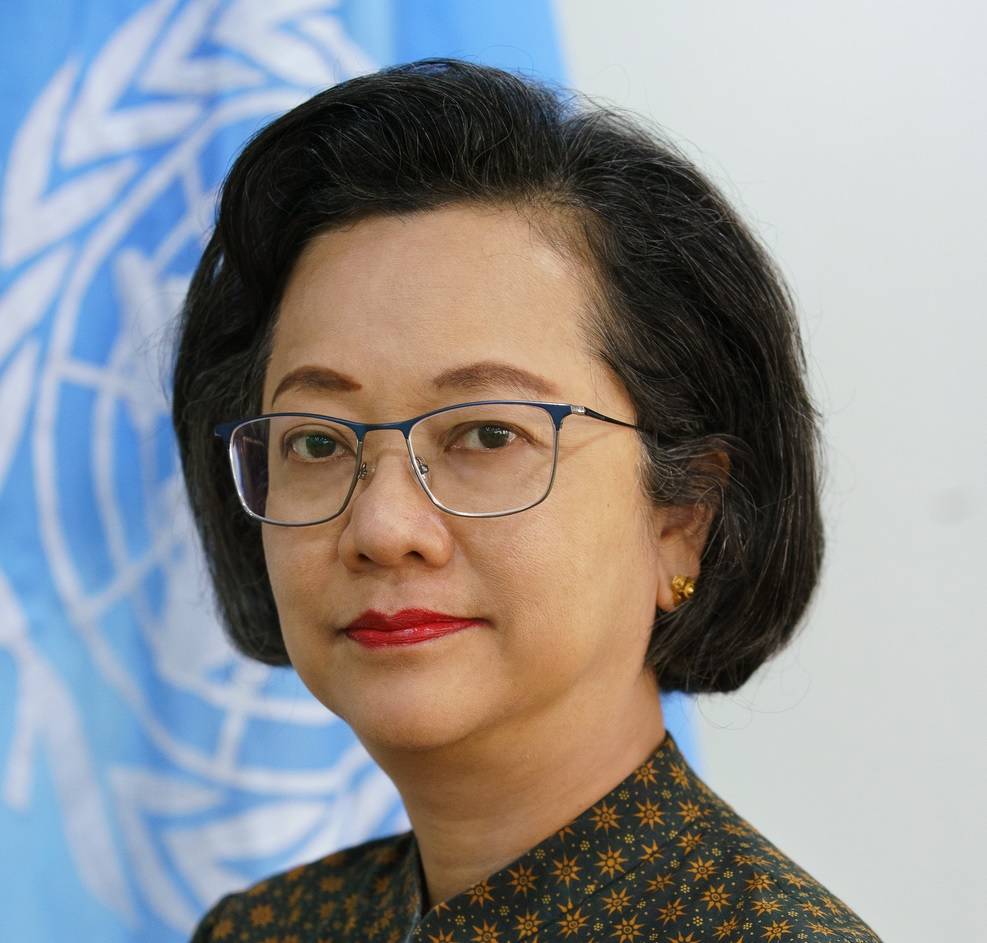The right policies can protect the workers of Asia and the Pacific
 By Armida Salsiah Alisjahbana
By Armida Salsiah Alisjahbana
Most of the 2.1 billion strong workforce in Asia and the Pacific are denied access to decent jobs, health care and social protection but there is an array polices and tools that governments can use to remedy these deficiencies and ensure that the rights and aspirations of these workers and their families are upheld and that they remain the engine of economic growth for the region.
A new report released today, the Social Outlook for Asia and the Pacific: The Workforce We Need, offers tangible solutions to immediately address alarming trends that both preceded the new coronavirus and were exacerbated by the pandemic.
While 243 million new people were pushed into poverty during the COVID-19 pandemic, half of all people in our region already had been surviving without cash, a third without necessary medicine or treatment and a quarter had gone without enough food to eat. This can lower productivity, which has fallen below the global average, but also tax revenues and future economic output.
With two-thirds of all workers in the region being employed informally, often with low wages, in hazardous working conditions and without a contract, half of our workforce are at the brink of poverty. People in our region are also at a higher risk of being pushed into poverty by health spending than anywhere else in the world, causing inequalities to further widen. With more than half of all people being excluded from social protection, pandemics, disasters economic downturns, or normal life events, such as falling ill, becoming pregnant or getting old often have detrimental impacts on households’ wellbeing and life prospects.
The reality is harsh: our workers are generally ill-equipped to unlock new opportunities, fulfill life aspirations for themselves and their families but also to face ongoing challenges emanating from megatrends of climate change, ageing societies and digitalization.
Climate-induced natural disasters cause businesses to relocate and jobs to disappear, disproportionately affecting rural communities. Digital technologies are bringing disruptive change to the world of work and the digital gap is intensifying inequalities in opportunities, income and wealth. Population ageing means that the number of older people will double by 2050, making policies to support active and healthy ageing ever more urgent.
None of these vulnerabilities are inevitable. With the right policies, our region’s workforce can become more productive, healthier and protected.
First, active labour market policies, through life-long learning and skill development, can support a green and just transition into decent employment and improve access to basic opportunities and adequate standards of living. Harnessing synergies between active labor market policies and social protection can help workers upgrade their skills and transition into decent employment while smoothing consumption and avoiding negative coping strategies during spells of unemployment or other shocks.
Second, extending social health protection to all can significantly improve workers’ health, income security and productivity. COVID-19 demonstrated the weakness of a status quo in which 60 per cent of our workers finance their own health care and receive no sickness benefits. A focus on primary health care as well as curative health protection is needed, also to support healthy and active ageing. People who are chronically ill or live with a disability must be included in health care strategies. Given the large informal economy across the region, extending social health protection is the key policy instrument for achieving universal health coverage in our region.
Third, building on the ESCAP Social Protection Simulator, a basic package of universal child, old age and disability social protection schemes, set at global average benefit levels, would slash poverty in our region by half. Our analysis also shows that social protection helps increase access to opportunities particularly for furthest behind groups. This income security would improve the workforce’s resilience. Extending social protection to all means increasing public spending by between 2 and 6 per cent of GDP, an investment well-worth its cost. The Action Plan to Strengthen Regional Cooperation on Social Protection in Asia and the Pacific can guide action towards broadening social protection coverage.
With this information at hand, there is a long overdue need for action. The policy recommendations set out in the Social Outlook are a priority for most countries in the region. These require bold but necessary reforms. For most countries these reforms are affordable but may require a reprioritization of existing expenditures and tax, supported by tax reform. Decent employment for all and an expansion of social protection and health care should form the foundations of a strong social contract between the State and its citizens. One where mutual roles and responsibilities are clear and where our workforce is given the security to fulfil their potential and be the force for achieving the 2030 Agenda on Sustainable Development in Asia and the Pacific.
————-
Armida Salsiah Alisjahbana is an Under-Secretary-General of the United Nations and Executive Secretary of the Economic and Social Commission for Asia and the Pacific (ESCAP)



